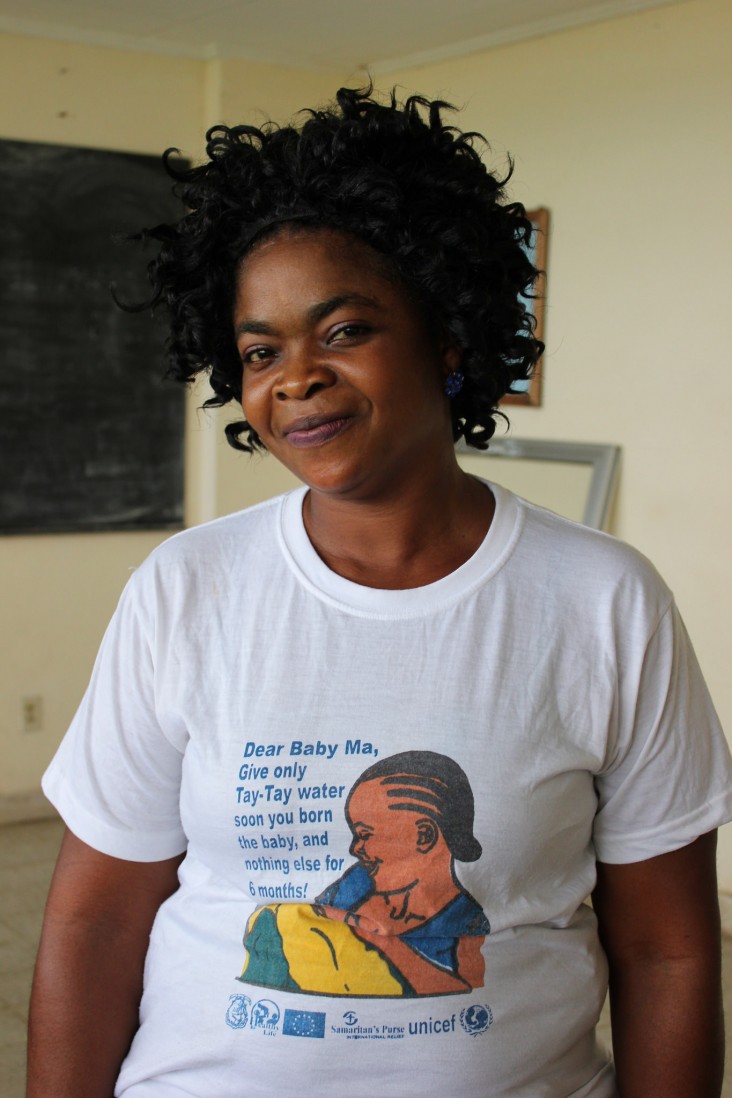Speeches Shim

August 2017—As a child, Patience Dahn used to fall asleep to the sound of her mother coaxing women through labor. She would feel herself fall asleep and then, in “the twinkle of an eye,” would hear a newborn baby crying. She remembers the sound of new life fondly, saying, “I used to love that.”
Dahn was inspired by her mother’s work as a traditional midwife in Liberia: “I used to like the way she took care of women. That’s when I started to love the career.”
Her admiration of her mother’s work led her to apply to become a registered midwife through the Tubman National Institute of Medical Arts’ School of Midwifery program. In mid-April, Dahn graduated from the institute in its 61st commencement ceremony. A high-performing, deeply motivated student, Dahn received the Best Midwife Award from the local office of the World Health Organization for her outstanding academic performance. She says her mother is very proud of her and was able to attend the graduation and see her daughter’s dream become a reality.
Since August 2016, USAID, through its Maternal and Child Survival Program, has supported the institute’s School of Midwifery. The program helps fill critical teaching gaps by supporting faculty salaries and fostering a quality learning environment.
As a traditional midwife, Dahn’s mother helped women out of her home, not in a hospital or clinic. And while she is following in her mother’s footsteps, Dahn has taken it a step further by becoming a formally trained, registered midwife. She advocates for women to deliver in facilities where they can receive care for complications and have access to trained medical staff like registered midwives and doctors.
Registered midwives are often the primary provider of maternal care throughout Liberia. The country’s health workforce remains significantly below national target levels, with the greatest shortages among midwives and laboratory personnel.
With Liberia’s high maternal mortality rate of 1,072 per 100,000 women, trained midwives are critical, life-saving positions. The women trained at the institute will help women across the country deliver their babies safely, thereby helping to reduce maternal mortality. These efforts contribute to the global effort to save the lives of 15 million children and 600,000 women by 2020.
Eleven students graduated from the midwifery program alongside Dahn in the spring. The USAID program supports four other midwifery schools throughout the country: the Phebe Training Program, United Methodist University, the Esther Beacon School of Nursing and Midwifery, and the Dianna Kay Isaacson School of Midwifery. The schools also work with the Ministry of Health to increase the number of graduating midwives. In total, 127 students graduated from the five midwifery schools following the 2016-2017 school year. These graduates will go on to provide family planning counseling, antenatal care, labor and delivery services, and postpartum and newborn care.
With diploma in hand, Dahn is now ready to start a career as an official, registered midwife. She hopes “to see more women to attend to, and I hope to serve humanity and serve my country.” In the future, she wants to move up in her career by becoming an officer-in-charge in a health facility.
The Human Resources for Health component of USAID’s Maternal and Child Survival Program has been working in Liberia since August 2016 to help strengthen the health workforce and maternal and child survival. The project focuses on improving pre-service education for registered midwives and medical laboratory technicians in six institutions by, among other activities, enhancing teaching skills; upgrading curricula, libraries, and science and computer labs; and increasing access to high-quality instructional resources.
LINKS
USAID’s mission in Liberia
Follow @USAIDLiberia, on Facebook, on YouTube
USAID Global Health
Follow @USAIDGH on Facebook

Comment
Make a general inquiry or suggest an improvement.